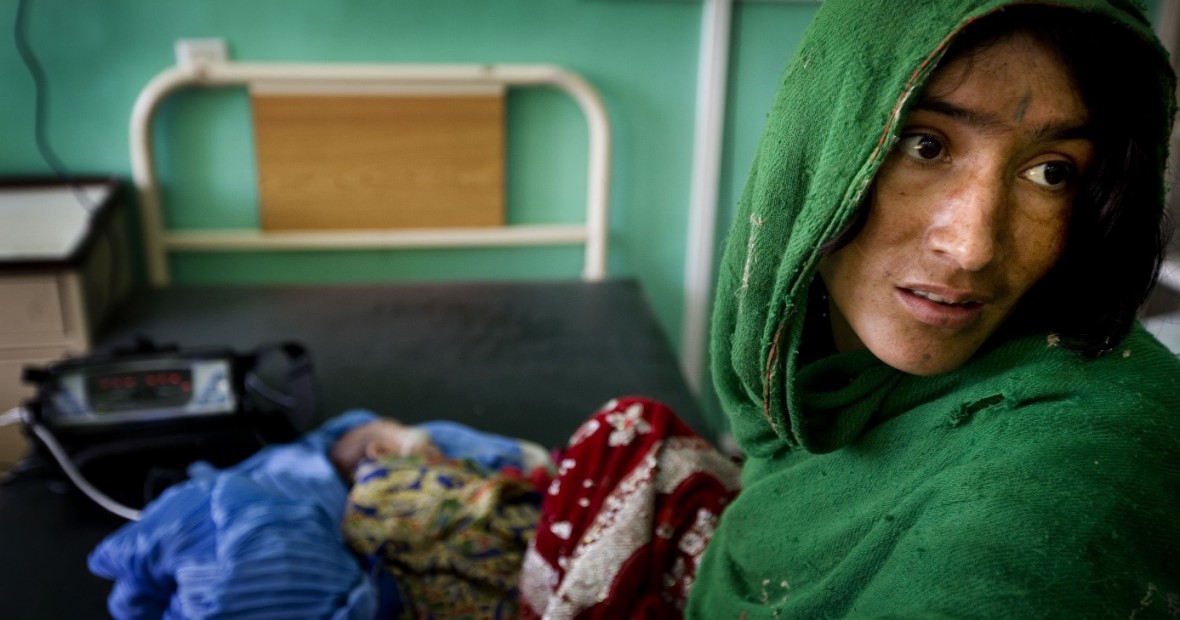In the last few months, a number of attacks against health-care workers, medical transports and facilities have taken place in several countries, like Afghanistan, Syria and Yemen to mention a few. These incidents are taking place in countries with fragile health-care systems that are already struggling to treat the numbers of people affected by the ongoing conflicts there. In some cases, the situation is made yet worse by the restrictions placed on aid workers, preventing them from getting to the people who need them.
Both the attacks themselves and their consequences are of serious concern. These were attacks on medical personnel and facilities protected under international humanitarian law, leaving death and destruction in their wake and disrupting vital health-care services. All those involved with the Health Care in Danger initiative are alarmed by the long-term impact these attacks may have on people’s health.
These are not isolated incidents. The International Committee of the Red Cross, through the Health Care in Danger project, has been gathering data in 11 countries since January 2012. By December 2014, 2,398 attacks against health-care personnel, facilities and vehicles had been recorded. This alarming situation highlights the urgent need for measures to prevent future violence.
The Health Care in Danger initiative, with the support of experts and professionals from different backgrounds, including from governments, the armed forces, humanitarian agencies, international professional associations and health-care services, as well as the International Red Cross and Red Crescent Movement, has formulated a substantive body of recommendations and identified practical measures that, if implemented by all those concerned, would increase the protection of health-care services in armed conflict or other emergencies.
As members and partners of the Health Care in Danger initiative, we call on States, weapon bearers, international and national humanitarian agencies and health organizations to give urgent attention to the recommendations resulting from the Health Care in Danger initiative.
In particular, we urge States:
- to make every effort to investigate and condemn attacks against health-care personnel, facilities and medical transports that violate international law, including international humanitarian law;
- to revise their domestic legislation and its implementation to ensure that it is in line with their obligations under international law, including international humanitarian law;
- to ensure that the military are properly trained to know, abide by and respect the applicable legal framework for the protection of health care as well as ethical duties of health-care personnel;
- to cooperate with health and humanitarian organizations to ensure that health personnel are specially trained to know, apply and uphold their legal and ethical duties;
- to actively seek to raise awareness of the proper use of the red cross/red crescent/red crystal emblems by armed forces and by the population at large;
- to take the opportunity of the forthcoming International Conference of the Red Cross and Red Crescent to further their commitment to implementing recommendations and measures on protecting health care in armed conflict and other emergencies and to consider submitting specific voluntary pledges on this issue.
We urge State armed forces:
- to respect in all circumstances, in particular in situations of armed conflict or other emergencies, health care workers, facilities and medical transports and to allow patients to receive adequate care, regardless of their affiliation;
- to revise military rules of engagement and operational practice and procedures to ensure that recommendations and measures for the protection of the delivery of health care are included therein and that military personnel are adequately trained in them.
We urge all non-state actors:
- to respect in all circumstances, in particular in situations of armed conflict or other emergencies, health care workers, facilities and medical transports and to allow patients to receive adequate care, regardless of their affiliation;
We encourage international and national humanitarian and health organizations:
- to continue to advocate for the preservation of principled humanitarian action, the respect of the “Ethical Principles of Health Care in Times of Armed Conflict and Other Emergencies “ endorsed by civilian and military health-care organizations in June 2015, and the protection of patients, health-care personnel, facilities and medical transport in armed conflict or other emergencies and to join ongoing efforts or to start their own initiatives to those ends.
- To ensure that health facilities they govern are taking necessary actions to reduce the risk of violence within the facilities’ premises.
Signatory organisations:
International Committee of Military Medicine; International committee of the Red Cross; International Federation of Medical Students’ Associations; International Federation of Red Cross and Red Crescent Societies; International Hospital Federation; World Federation for Medical Education; World Medical Association

Health Care in Danger is an initiative of the International Red Cross and Red Crescent Movement to make access to, and delivery of, health care safer in armed conflict or other emergencies. This initiative calls for the respect and protection of health-care workers, facilities and vehicles and the implementation of a series of recommendations and practical measures to safeguard health-care services and their humanitarian mission. This initiative is supported by a number of partners, individuals and organisations, members of the Health Care in Danger Community of Concern.
For more information visit the Health Care in Danger website


